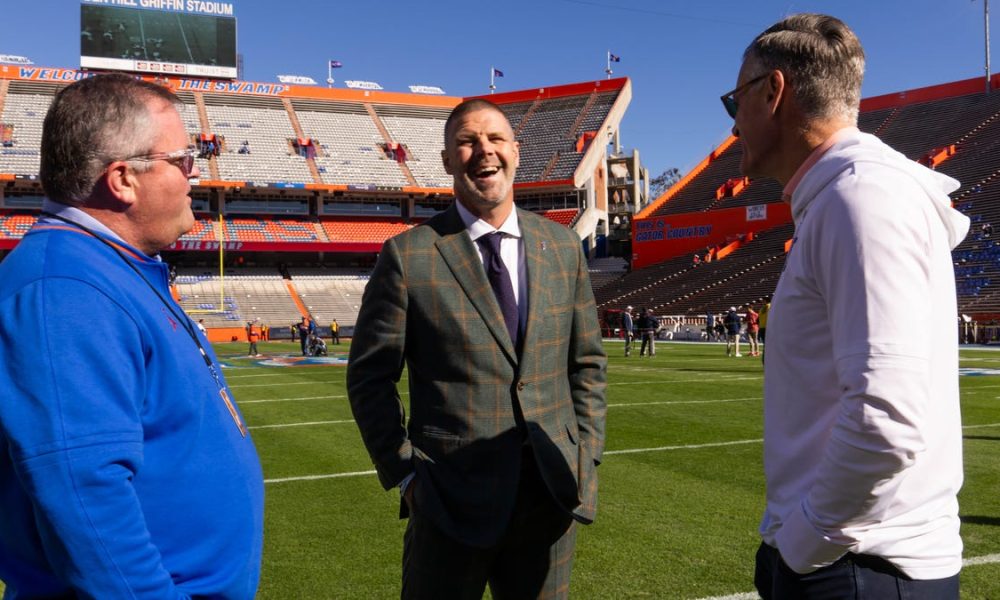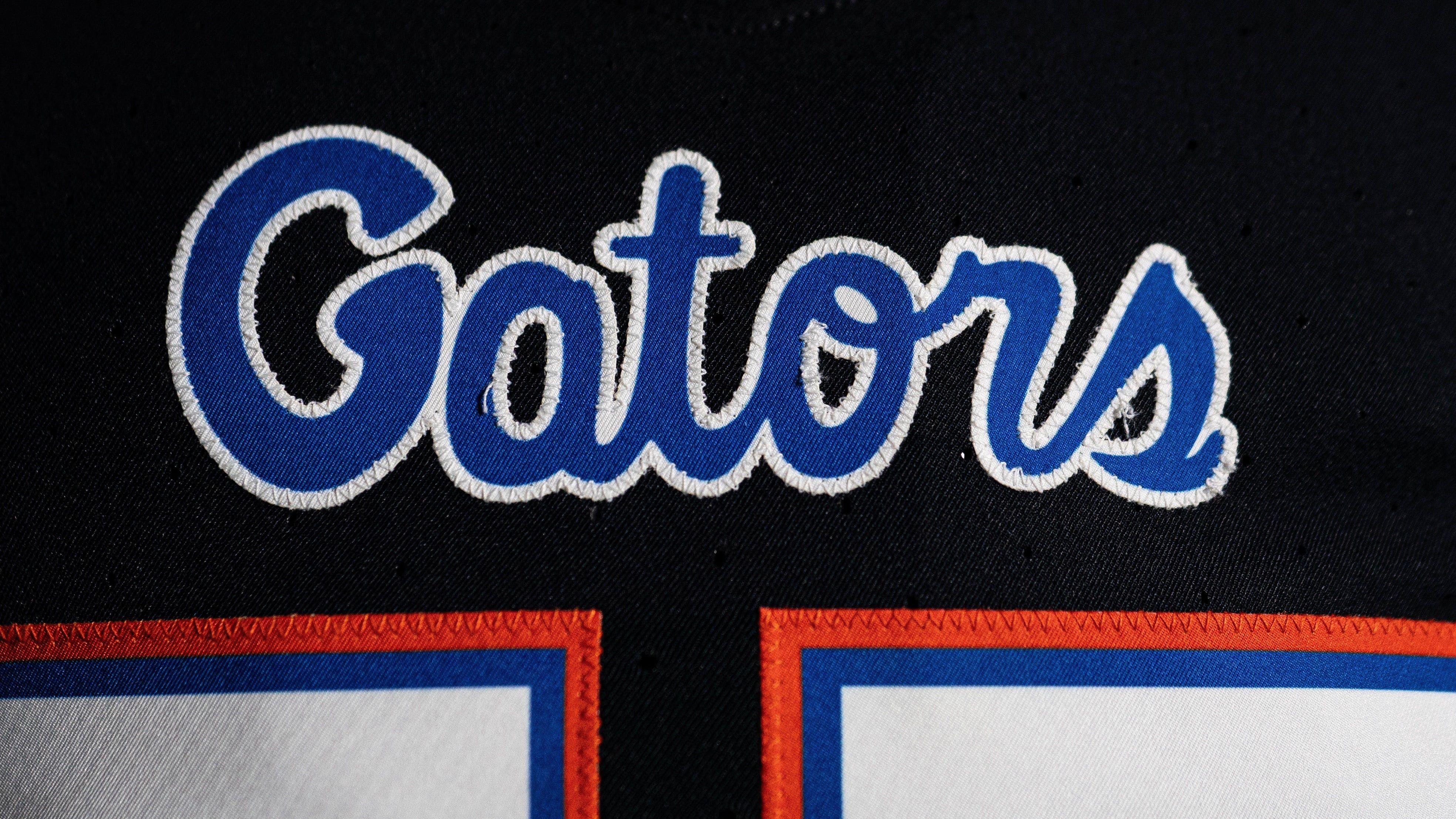NIL
Breaking down house settlement and how it could impact UF athletics
Swampcast breaks down Florida softball at WCWS, Florida basketball The Sun’s Kevin Brockway and Noah Ram and Kevin Brockway are joined by Nathan Geise of the Lubbock Avalanche-Journal to break down Florida softball, Texas Tech in WCWS. The University of Florida can now pay athletes directly due to the House vs. NCAA settlement. Florida football […]


Swampcast breaks down Florida softball at WCWS, Florida basketball
The Sun’s Kevin Brockway and Noah Ram and Kevin Brockway are joined by Nathan Geise of the Lubbock Avalanche-Journal to break down Florida softball, Texas Tech in WCWS.
- The University of Florida can now pay athletes directly due to the House vs. NCAA settlement.
- Florida football and men’s basketball are likely to receive the majority of the $20.5 million allocated for athlete compensation.
- NIL deals exceeding $600 will be reviewed for legitimacy by a clearinghouse monitored by Deloitte.
The landmark House vs. NCAA Settlement, approved on June 6 by U.S. District Court Judge Claudia Wilken, opens the door for athletes to be paid directly by the University of Florida Athletic Association.
According to the settlement, starting on July 1, UF can spend up to $20.5 million on its athletes, which includes funding scholarships and paying them directly. How that money is allocated by sport remains to be seen. Florida athletic director Scott Stricklin was unavailable for comment this week and may or may not choose to disclose how the money will be distributed.
UF has the potential to provide financial support to all 21 of its men’s and women’s sports, either by paying athletes directly or funding scholarships. Priority, though, will likely be given to two major revenue producing sports, Florida football and Florida basketball, which is coming off a national championship season. A model prescribed in the preliminary House settlement calls for about 75% to be paid to football players, 15% to men’s basketball, 5% to women’s basketball and 5% to other sports.
That’s based on the revenue generated by each sport. Per UF’s latest NCAA financial report, football generated $100,796,971 in revenue in fiscal year 2024, followed by men’s basketball at 14,344,967 and baseball at 4,328,038. Football accounted for 50.4% of UF’s total athletic department revenues ($200,094,587), while basketball accounted for 7.2%.
Stricklin released a statement on June 7, the day after the settlement was reached.
“The University of Florida Athletic Association welcomes the recent court ruling allowing schools to directly share revenue with student-athletes,” Stricklin said in the statement. “This decision marks an important step forward for college athletics, and we remain committed to supporting Gator athletes on and off the field. Beyond financial opportunities, the UAA will continue to provide world-class training, academic support, and career development to help our Gators succeed during their time at UF and beyond.”
Can Florida athletes still receive outside endorsements?
Florida athletes can still receive outsides Name, Image and Likeness endorsements based on the value of their brands. But those deals will undergo more scrutiny.
All NIL deals of more than $600 will pass through a clearinghouse which will determine the legitimacy of the deal based on the athlete’s market value. For example, Cooper Flagg’s multi-million-dollar deal with New Balance would pass the smell test based on coming into college basketball as the nation’s top college recruit playing for one of the sport’s biggest college basketball brands, Duke. But under the new system, the days of promising a five-star offensive lineman a six-figure deal NIL deal out of high school to keep from signing with a rival school are likely over.
The accounting firm Deloitte will monitor the NIL clearinghouse. Athletes will submit NIL deals of more than $600 to an online platform called NIL Go, where they will be reviewed.
The NCAA will no longer be involved in rules enforcement, replaced by the College Sports Commission, which was formed by and has received the full backing from major conference commissioners. The College Sports Commission will hand out punishments to schools who break rules regarding NIL and revenue sharing.
“Our schools want rules,” Big 12 commissioner Brett Yormark told a group of national media outlets this week. “We’re providing rules, and we will be governed by those rules. And if you break those rules, the ramifications will be punitive.”.
Mit Witner, a Kansas City-based attorney specializing in sports law and NL legislations, expects more legal challenges to arise due to the NCAA’s inability to secure an antitrust exemption.
“If the College Sports Commission says if an athlete wants to remain eligible, they can’t do this deal to play college sports, it’s acting as a limit on the college athlete’s compensation,” Witner said. “There’s no antitrust exemption now for that, so I definitely think there will be litigation on that issue.”
How Florida football has prepared for paying its players
Florida football coach Billy Napier said he expects revenue share to provide more stability in terms of compensating football players entering the 2025 season.
In Napier’s first three seasons, he relied on funds and NIL deals generated from Florida Victorius and the now defunct Gator Collective. A botched NIL deal by the Gator Collective for five-star quarterback recruit Jaden Rashada resulted in Napier, booster Hugh Hathcock and former UF staff member Marcus Castro-Walker getting sued by Rashada for fraud and vicarious liability.
Last February, Napier made two front office hires to the football program, adding Benjamin Elsner as director of football strategy and Nick Polk as Associate Athletic Director/Football General Manager,
Polk spent 17 seasons as Director of Football Operations for the Atlanta Falcons (2004-21), where he was responsible for salary cap management, including draft negotiations, contract proposals, player contracts, coaches’ contracts, trades and trade value analysis. Those skills will be put to test in the new college sports revenue share era.
“His experience with the cap management, the strategy around contracts, that’s part of the game, right?” Napier said last March. “He’s hit the ground running.”
Kevin Brockway is The Gainesville Sun’s Florida beat writer. Contact him at kbrockway@gannett.com. Follow him on X @KevinBrockwayG1. Read his coverage of the Gators’ national championship basketball season in “CHOMP-IONS!” — a hardcover coffee-table collector’s book from The Sun. Details at Florida.ChampsBook.com